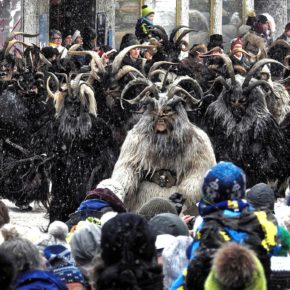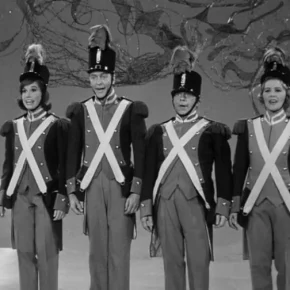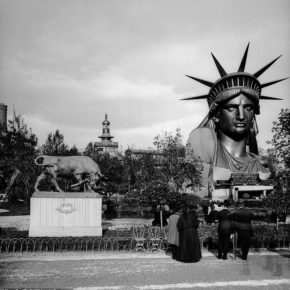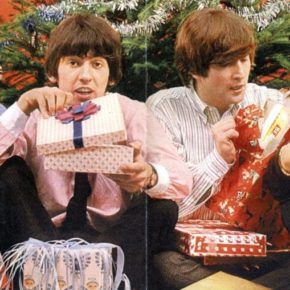Tonight, DC for Democracy holds its monthly meeting at Ben’s Chili Bowl. They will vote on a measure that will radically alter their endorsement process by introducing instant runoff voting (IRV) as a new system for selecting endorsed candidates.
And I urge every member of DC for Democracy who wishes to see it remain a strong, viable, relevant and unique organization to vote against IRV at tonight’s vote.
When DC for Democracy (DCFD) was formed in 2004, the makeup of the group was diverse: seasoned DC political activists, newcomers to the activist scene, progressives, liberals, moderates, connected and independent. It was a huge group that had lofty goals: to change the political dialogue and promote issues of local, regional and national import. We took inspiration from Howard Dean, whose campaign for president started the group that became DC for Democracy.
DC for Democracy spent an entire day in retreat, discussing the creation of the PAC, and various rules, regulations and by-laws that would govern its actions. One of the more animated breakout groups was the one discussing political endorsements.
One of the over-arching themes was that any political endorsement given by the group should not be given in passing, but should reflect a solid amount of support from a majority of the membership. That way, a candidate endorsed by DCFD would know that the group’s support was from a clear majority of the membership, with little question about depth of support. Given that a lot of differing political views were reflected in the makeup of the organization, it was believed that endorsement purely for the sake of doing so would be wrong and would weaken the organization.
We embraced the “big, inclusive tent” ideal that often is the hallmark of progressive and liberal organizations, for better and for worse, and our endorsement rules reflected this: any candidate wishing endorsement by DC for Democracy had to receive 2/3 or more of votes casted in an endorsement vote. Unless this hurdle was cleared, no endorsement would be given.
It was a marked departure from many other local PACs and political clubs, which would often fight tooth and nail to endorse a candidate, even if it meant that a majority of the organization’s members didn’t necessarily agree with said endorsement, or wouldn’t support their organization in helping with the campaigns of the endorsed.
DCFD decided to take the high – and in my view, proper – road: no endorsement purely for endorsement’s sake.
And guess what? It worked. In the 2006 DC elections, there were close endorsement races for two of the most hotly contested seats: mayor and council chair. And many members of DCFD had their favorites, and weren’t going to be swayed by the outcome of the org’s vote. And in both of these races, no candidate cleared the 2/3 threshold. Thus, the organization could continue to focus on pressing its agenda for progressive change in DC without being tied to a particular campaign.
To me, this worked beautifully. The organization survived, its membership still active in local politics, the diversity of opinions still respected and welcomed at meetings, strategy sessions, and outings. It was – and still is – a unique synergy that is a model for similar organizations.
But now there is a movement to change the rules which have worked well for DCFD. The current administration feels that it “diminishes the influence” of DCFD when the group fails to endorse candidates. As a result, the group has brought forth the idea of IRV.
In the proposed modification of DC for Democracy’s bylaws, IRV would enter into the equation when more than two candidates are eligible for endorsement – a case like the current makeup of the 2008 candidates for president. In its proposed form, DCFD’s IRV would keep the same 2/3 threshold for endorsement.
But rather than make the decision a simple up-or-down motion, IRV would introduce the specter of compromise outcomes. The IRV modification allows DCFD members to vote for two candidates, regardless of the size of the candidate pool. So it’s entirely possible that a simple majority of members could support a single candidate, see said candidate eliminated, and see a second-choice (either theirs or somebody else’s) endorsed in a half-hearted 2/3 majority.
Or no endorsement could be reached, as any ballot where the two ranked candidates to not pass elimination hurdles are lumped into a “No Endorsement” de facto group. And there’s a high likelihood that this outcome will become commonplace – thus making IRV a long-winded way to get to the same outcome as happens with the current system.
In theory, IRV could work well – in an actual political election. But in the ranks of an organization like DCFD, it could lead to frustration, confusion and disenfranchisement.
The frustration would arise if the vote’s outcome resulted in the group endorsing a candidate who is nobody’s first choice. In other communities where there isn’t as much active participation in the political process, this could be passable. But most of DCFD’s most ardent supporters are also activists who dive head-long into campaigns for particular candidates. And if their candidate of choice isn’t endorsed, it forces some tough choices: support your candidate, or support your PAC.
Confusion could also reign supreme if certain provisions aren’t rigorously observed. For example, at the demonstration vote at the August Meetup, it was never made clear that there was a “no endorsement” choice available. As such, there were quite a few under-votes (where people failed to rank every possible “candidate”), and many ballots were cast aside. This is confusing to people who aren’t fully versed in IRV process and function, and could be easily manipulated or abused by people who are either not paying attention to the vote, or are trying to force an ulterior agenda.
The demonstration vote was for an ice cream social venue, and it had confusion in its vote counting, final tally, and so forth – and it was a rehearsed exercise. I’d hate to see the chaos that could result from a vote with more real-world ramifications.
And then there’s the true possibility of disenfranchisement. If a particular “compromise” candidate is endorsed, it will force the hands of the membership: do they follow their personal choice, or do their support the PAC? One thing that has become abundantly clear over the three year history of DCFD is that movement politics doesn’t always make a clean transition from group discussion to actual shoes-to-the-pavement action. DCFD has come under scrutiny for this in past endorsements for political races in DC and Virginia, where a great number of group members voted for endorsement of a candidate, but precious few “represented” for the group – either via monetary donation or actual volunteering for the individual campaigns.
(For example, the DCFD volunteer crew for Rep. David Poisson numbered something around 8 to 10, while Mr. Poisson garnered the majority of votes in a well-attended Meetup that attracted over 40 DCFD members – a rather steep attrition rate for any organization, and embarrassing for our Virginia outreach coordinator, who promised more volunteers than the handful who showed up.)
This potential is worsened when a “compromise” candidate is chosen for endorsement via IRV. Given that the “abandon rate” for active participants is already high when there is a clear winner in endorsement, it stands to be far, far worse if the “winner” isn’t the candidate of choice for many members of the organization.
And one final thought: political division over weighty issues has caused rifts withing DC for Democracy in the past. The heated arguments and votes over the group’s endorsement of an anti-war rally caused a major cleft in the membership of the organization that has yet to fully heal. Adding the potential for further cleaving is not the way to grow DCFD, or to preserve the organization that currently exists.
I applaud the current leadership for taking criticism about the IRV proposal from the August Meetup into account when drafting the current IRV proposal. If anything, there’s a good attempt at reaching out to the critics.
As a founding member of DC for Democracy (as well as its precursor, DC for Dean), I feel a sense of pride and protection toward the group. I want to see it thrive as a vital and unique organization in the DC political landscape.
But radical change of the group’s endorsement process is not the proper way to do this. IRV will only serve to water down DC for Democracy’s political clout, and will likely render it ineffective in local electoral politics.
Endorsement purely for the sake of endorsement does nothing but water down DC for Democracy’s unique power, makeup and clout.
To all my friends at DC for Democracy: I urge you to keep our organization unique, and to vote NO on IRV.















CLAY SHENTRUP
8 September 2007 — 14:07
IRV is perpetuated on the basis of huge myths. The truth is that better and simpler methods than IRV exist – and IRV is lethal to third parties, because voting for a non-major-party candidate is statistically more likely to hurt you than help you. The world needs Range Voting or its simplified form of Approval Voting. Here’s why.
Consider this hypothetical election using IRV.
#voters – their vote
10 G > C > P > M
3 C > G > P > M
5 C > P > M > G
6 M > P > C > G
4 P > M > C > G
C is the clear Condorcet (condor-SAY) winner, meaning he is preferred by a landslide majority over all his individual rivals. C is preferred over G, P, and M all by an 18-10 margin.
But… M wins, even though he also has fewer first-place votes (6 voters) than C with 8.
Also:
1. P is preferred to M by 22 of the 28 voters, yet he’s the first candidate eliminated.
2. G also has more first-place votes (10) than M’s 6.
3. So M either loses pairwise to, or has fewer first-place votes than (or both) every rival, but still IRV elects M.
The example above was intended to be “realistic,” perhaps somewhat resembling the situation in the (now evolving) 2008 US presidential race with G=”Green”, M=McCain, C=Edwards, and P=Paul. But if you are willing to drop realism and construct artificial election scenarios, then this demonstrates how to construct arbitrarily-severe election examples of this kind: http://rangevoting.org/IRVamp.html#bad
IRV sounds initially appealing, because people picture a weak third party candidate who loses in the first round. The myth is that this takes away the fear of voting for your sincere favorite candidate, and gives third parties a fair chance to grow; but if that candidate or his party ever grows to be a contender, he is statistically more likely to hurt the party closest to his own than to win. It doesn’t matter how unlikely you imagine the above scenario to be – it’s still _more_ likely than the odds “Green” will win. And so third party voters will learn to strategically vote for their favorite major-party candidate, because it will more often be a good strategy than a bad one. You don’t have to buy my math; you can look at decades of IRV usage in Australia’s house, and Ireland’s presidency. Both use IRV, and have been two-party dominated. So much for the myths that IRV allows you to “vote your hopes, not your fears”, and eliminates spoilers. Now you can see why the Libertarian Reform Caucus calls IRV a “bullet in the foot” for third parties, and why Australian political analysts at AustralianPolitics.com say that IRV “promotes a two-party system to the detriment of minor parties and independents.” Ironically, most of the many countries in the world who use a genuine _delayed_ runoff have broken free of duopoly. Yet third parties just worked to help replace that system with IRV in Oakland, CA. This can be chalked up to a result of massive public ignorance, largely perpetuated by groups such as FairVote and the League of Women Voters (http://RangeVoting.org/Irvtalk.html).
Electoral reform advocates (especially third parties!) should be demanding Range Voting – score all the candidates and elect the one with the highest average. Its simplified form, Approval Voting, is probably the most feasible to implement. It simply uses ordinary ballots, but allows us to vote for as many candidates as we like. Consider the benefits:
* More resistant to strategy: As we see above, IRV strategically “forces” voters not to top-rank their sincere favorite; the general strategy with IRV is to top-rank your favorite of the front-runners (typically the major party candidates). But with Range Voting and Approval Voting, this _never_ happens. The worst a voter may do is exaggerate his sincere scores to the max and min scores allowed. But with Range Voting, a vote for your favorite candidate can never hurt you, or the candidate, whereas with IRV it can hurt both. — http://RangeVoting.org/StratHonMix.html
* The previous fact helps to explain why IRV results in two-party duopoly, just like plurality voting. — http://RangeVoting.org/TarrIrv.html
* Spoiler free: Whereas IRV merely _reduces_ spoilers. — http://rangevoting.org/FBCexecSumm.html
* Decreases spoiled ballots: Since voting for more than one candidate is permissible, the number of invalid ballots experimentally goes down with Range and Approval Voting. But IRV typically results in a seven fold increase in spoiled ballots when we started using IRV. — http://rangevoting.org/SPRates.html
* Simpler to use: In 2006, the Center for Range Voting conducted an exit poll experiment in Beaumont, TX. There were 5 gubernatorial candidates, and voters were allowed to rate them 0-10 (or “abstain”). They all seemed to find the process as simple and intuitive. There were no complaints of complexity, or any questions for clarification. And the fact that spoilage rates go down with Range Voting, but up with IRV, shows that there is some objective sense in which RV is simpler. Voters literally make fewer mistakes.
* Simpler to implement/tabulate: A simple one-round summation tells us the results, whereas IRV’s potential for multiple rounds can cause long delays before the final results are determined. A positive side-effect of Range Voting’s simplicity is that it makes the necessary transition to manual counting, and away from voting machines, more feasible. And Range Voting can be conducted on all standard voting machines in the interim. Whereas IRV’s complexity leads most communities implementing it to purchase expensive and fraud-conducive (electronic!) voting machines, the fraudster’s best friend. — http://RangeVoting.org/Complexity.html
* Greater voter satisfaction: Using extensive computer modeling of elections, a Princeton math Ph.D. named Warren D. Smith has shown that these methods lead to better average satisfaction with election results, surpassing the alternatives by a good margin. But IRV turns out to be the second _worst_ of the commonly proposed alternatives. This mean that all voters will benefit from the adoption of either of these superior voting methods, regardless of political stripe. — http://RangeVoting.org/vsi.html
* Reduces the probability of ties: While they are not extremely common, they do happen. IRV statistically increases them, but Range Voting decreases them. — http://RangeVoting.org/TieRisk.html
* In case you’re going to say, “But IRV has more _momentum_ than Range Voting”, you should consider this. — http://RangeVoting.org/IRVsplitExec.html
* In case you wonder why groups like FairVote and the League of Women Voters support IRV, maybe you should consider all the misleading and even patently false claims they’ve made about it. — http://RangeVoting.org/Irvtalk.html
Get the facts at RangeVoting.org and ApprovalVoting.org
And if you’re in the market for a better system of proportional representation (http://RangeVoting.org/PropRep.html) than the antiquated STV system, check out Reweighted Range Voting and Asset Voting.
http://RangeVoting.org/RRV.html
http://RangeVoting.org/Asset.html
Clay Shentrup
San Francisco, CA
415.240.1973
[email protected]
Laura Roslin
8 September 2007 — 23:36
Take a look at these headlines in San Francisco:
IRV as “incumbent protection”:
No one is running against S.F. district attorney in fall election Demian Bulwa, San Francisco Chronicle,
08/16/07
San Francisco District Attorney Kamala Harris collected more than $500,000 from donors for her re-election effort, lined up high-profile endorsements and launched a campaign Web site. Then the clock at the Department of Elections struck 5 p.m. Friday, the…
Where’s all that healthy competition that IRV would provide?
Mayor Newsom says he’s no shoo-in:
‘It’s not over’
Cecilia M. Vega, San Francisco Chronicle, 08/12/07
San Francisco Mayor Gavin Newsom cautioned a crowd of cheering supporters Saturday against prematurely celebrating his re-election victory, saying that despite the absence of a challenger who comes close to matching his campaign war chest or popularity…
Tony Hall quits race for S.F. mayor, calling Newsom too entrenched
Wyatt Buchanan, San Francisco Chronicle, 08/31/07
Tony Hall – the best-known candidate challenging San Francisco Mayor Gavin Newsom for reelection – is pulling out of the race, citing a lack of opposition in the city to a second term for the mayor. Hall, a former San Francisco supervisor, made that…
Newsom lacks serious challengers, but lineup is full of characters
Cecilia M. Vega, San Francisco Chronicle, 08/11/07
It sounds like the beginning of a bad joke: A chicken, a wolf and a grasshopper … But in true only-in-San Francisco form, it’s a partial list of candidates voters will get to choose from when they go to the polls in November to select a mayor. With the…
Gonzalez decides against mayor race – Newsom to face field of unknowns
Cecilia M. Vega, San Francisco Chronicle, 07/31/07
Matt Gonzalez, the former San Francisco supervisor who was city progressives’ last hope for a big-name candidate to challenge Mayor Gavin Newsom in his re-election quest, said Monday he will not run for mayor this fall. The decision follows weeks of…
San Francisco spent over a $million to get special software to accommodate IRV elections, and now the SOS won’t let them use it.
SAN FRANCISCO – Officials scurry to find solution to longtime vote machine problem
John Wildermuth, San Francisco Chronicle, 07/25/07. Election officials in San Francisco and Sacramento are scrambling to find a way to keep the city from having to count more than 200,000 ballots by hand this November, a nightmare process that could drag on for weeks. California Secretary of State Debra…
And here is a story about how one of the least preferred candidates becomes the winner:
Now, how did this guy get elected?
John Diaz, San Francisco Chronicle, 06/10/07
IN RECENT years, San Francisco voters have set up systems promising to encourage the election of citizen-politicians from the neighborhoods and to raise voter participation and the prospects that our elected leaders arrive in office with a “mandate.” So…
So, how did it come to pass that the city’s newest supervisor, Ed Jew, apparently did not even live in the Sunset District and was the choice of just 5,125 (or 26.2 percent) of voters? And the FBI is looking into what this “citizen politician” was doing with $40,000 in cash from tapioca-shop owners who had sought his help with city permits.
It turns out that both of the voter-installed “reforms” — district elections, instant-runoff voting — helped make it possible for the flower-shop operator, who once served as vice chairman of the local Republican Party, to get elected in San Francisco on a “grassroots” campaign.
Joyce McCloy
8 September 2007 — 23:45
IRV also encourages the use of touchscreen voting. IN our state, the optical scanners are not able to record the 2nd and 3rd choices, so they are counted manually if at all, and are not reported on election night.
But touchscreen machines can record the choices, but to get the 2nd and 3rd rankings, the data has to be exported to an excell spread-sheet. Then if you are lucky, everything goes right during that process.
Right now we are only cursed with a Pilot Program here in NC, and only 2 tiny towns have volunteered.
IF IRV spreads in our state, I expect it will create a demand for touchscreens, and our election integrity will degrade.
San Francisco
Take a look at some of the findings in these studies of San Francisco’s 2004 & 2005 IRV election, conducted by the Public Research Institute at San Francisco State University:
An Assessment of Ranked-Choice Voting in the San Francisco 2004 Election
SUMMARY
The majority of voters appear to have made the transition to Ranked-Choice Voting with little problem: about seven out of eight we surveyed said that, overall, they understood it “fairly well” or “perfectly well.” However, that leaves one in eight who expressed some lack of understanding.
…We found differences across racial and ethnic groups in regard to their prior knowledge of RCV, their overall understanding, and their propensity to rank candidates on the ballot.
Non-Hispanic Whites and Asian Americans came to the polls more aware of RCV than others. Whites and Asians also reported a higher level of overall understanding than other groups.
African Americans reported less understanding than other racial/ethnic groups, a difference that grows once other influences are considered.
http://pri.sfsu.edu/reports/SFSU-PRI%20Ranked%20Choice%20Voting%20Preliminary%20Report.pdf
2005 was worse for voters than 2004:
An Assessment of Ranked-Choice Voting in the San Francisco 2005 Election
IRV was re-named Ranked-Choice Voting because it can take days or weeks to get the results.
Prior Knowledge of Ranked-Choice Voting (RCV)
– A narrow majority of voters surveyed (54%) knew before voting that they would be asked to rank candidates for City Treasurer and Assessor in the 2005 election.
– The proportion of voters who had prior knowledge of RCV was lower in 2005 (54%) than in the 2004 election for the Board of Supervisors (67%).
– Those with lower rates of prior knowledge tended to be those who were less educated, reported having lower incomes, and spoke a primary language other than Spanish.
– African Americans were considerably less likely than other racial and ethnic groups (41.9%) to know they would be ranking their choices for these offices.
-The majority of voters reported ranking three candidates in the race for City Treasurer (57%), while 33% reported selecting only one candidate.*
*That means that in the event the first choice does not win, 33% do not participate in the “run-off”.
http://www.sfgov.org/site/uploadedfiles/election/Elections_Pages/July1706.pdf
More here, and NC VV isn’t alone in trying to stop IRV, so is Minnesota Voters Alliance. http://mnvoters.org/IRV.htm
Many jurisdictions and organizations have turned IRV down after studying the facts, including voter education and costs. IRV is not “as easy as 1-2-3”.
IRV assumes an educated and informed electorate.
Find out what computer scientists, mathematicians, political consultants, election officials, government officials, and voter advocates say about IRV. Read the official reports on San Francisco’s IRV elections. Find out why so many turned this experiment down when the pros AND cons were discussed:
http://www.ncvoter.net/downloads/Instant_Runoff_Voting_Value_and_Risks_Report.pdf
http://www.ncvoter.net/irv.html